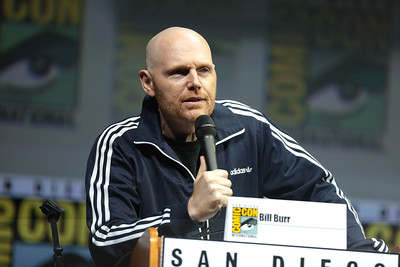The controversy and criticism around Bill Burr’s SNL monologue


Bill Burr recently went on Saturday Night Live and delivered an opening monologue that has stirred up quite a bit of controversy. Some have been praising Burr’s jokes as a reality check and a funny departure during an otherwise unfunny time. Others have blasted the piece, calling it offensive and unassuming.
After analyzing the comedy routine myself, I found the majority of it inoffensive. Yet, it’s important to relay my reasons for thinking so.
In many of the positive reactions to this routine, plenty of people brought up that part of the reason this piece is inoffensive is because of the comedian who’s saying it. Bill Burr has made his name by refusing to hold back.
He mocks anyone and anything on his mind and in an age where most celebrities feel forced to walk on eggshells, Burr stands out.
However, to use his prior actions as a defense for this piece to me is irrelevant. It’s important to view this monologue in a vacuum and judge it for the monologue itself, regardless of who was saying it.
So then, let’s talk about the monologue. Burr’s first controversial bit comes at the expense of ‘cancel culture’, remarking that at this point “they are running out of people to cancel.”
Burr then talks about the mob’s attempt to cancel John Wayne—a man who has been deceased for more than forty years. He hilariously states that God has already canceled Wayne.
Burr then explains the attitude of John Wayne’s time, how blatant racism was more common half a century ago—especially from people like Wayne who were born in the early 1900s.
I’ve heard some people say that this is Burr defending bigotry. However, I see this as a mere statement of fact. Racism was condoned far more often fifty years ago than it is today.
This is not a defense of Wayne’s deplorable comments, rather it calls into question how trivial and unnecessary it is to virtually ‘cancel someone’ so far removed from human consciousness.
The next bit of controversy—which may have been vocalized the loudest by those who were offended—regards the relationship white women have with the ‘woke’ movement.
Burr discusses how white women have—at least in his view—hijacked the woke movement; a movement originally started for disadvantaged people of color.
Burr lashes out against these women for placing the blame of oppression squarely on white males, pointing out that throughout history white women stood by toxic white men as they committed racist atrocities.
He explains that women are no better and often indulged in the benefits that slavery and racism provided, finishing off by saying that white women deserve to get the same talking to that white men receive.
The controversy around this section confused me, mainly because everything Burr said was factual. Not only that, the section was delivered really well with a lot of well thought out jokes sprinkled throughout.
The jokes were inoffensive enough to still be considered jokes and funny enough to get a genuine reaction out of me. Sometimes you just have to take the joke and laugh along with it.
For Burr’s final section, he talks about his personal discovery of pride month. Honestly, this part starts out about as tame as the rest of his set, joking about general stereotypes around a specific group of people—in this case, the LGBTQ+ community.
He makes a joke about how pride month gets a warm thirty-one day June to celebrate their pride while black people are only afforded a twenty-eight day February where the weather is generally overcast.
He thinks that black history month is almost more deserving of a summer month than pride month, saying that thirty-one days is a bit long for a group of people who were never enslaved.
To me, this downplays the tumultuous and difficult history of people who would now be a part of the LGBTQ+ community. While yes, they were not enslaved, they were often hunted, murdered, imprisoned and tortured throughout the majority of human history.
If Burr was being sarcastic that’s one thing, but I did not sense any irony in his comment. I think this joke downplayed the historical plight of a minority group deserving of more respect.
Burr’s monologue was funny overall and had me laughing up until that last section. His style of comedy may not be for everyone, but if you are typically a fan of edgier humor, Bill Burr is definitely your guy.

